Amir Mizroch
What if Australian agents used Israeli passports?
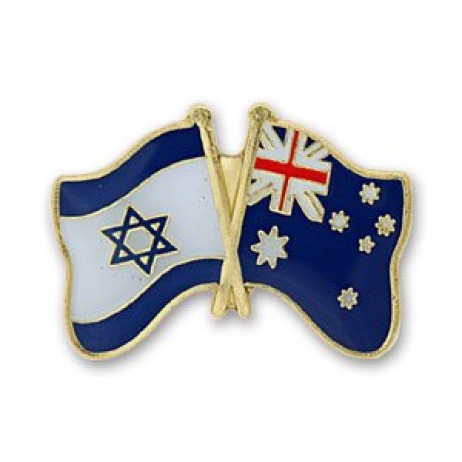
Surprise surprise. The New York Times reports that the Hezbollah men who traveled to Burgas, Bulgaria to kill Israelis, did so by using Australian and Canadian passports, and they also carried fake Michigan IDs which were fabricated in Lebanon.
Now I know Australia is furious with Israel over the latter’s use of its passports. And apparently Israel promised Canberra that it wouldn’t do so again. Australia even expelled two Israeli diplomats after the Mabhouh affair, in which Mossad apparently used Australian passports. Will Australia now read the riot act to Hezbollah? Will Canada call in the Lebanese ambassador, who represents a government of which Hezbollah is a senior member?
I may be extremely naïve, but I can’t see why this would be necessary in this day and age. I understand the necessity of sovereignty and not putting Australian citizens traveling abroad in precarious situations, but as I see the global terror map, Israel and Australia are on the same side, with Hezbollah and its ilk on the other. So if everyone is using everyone else’s passports, why would the Australians give Israel so much stick over the use of its passports? The same goes for Canada. I understand that Australia and Canada don’t want their traveling citizens to be suspected of working for Mossad, and I feel their apprehension. I also see the inherent problem here for Australian Jews of being accused of dual loyalty. But what if this wasn’t even an issue? What if Australia and Israel’s security concerns and priorities dovetailed when it came to the war on terrorists? What if every Australian, Jewish and non-Jewish, understood that he or she stands shoulder to shoulder with Israel in this fight?
Surely Canberra and Jerusalem could come up with a modus vivendi that works for both countries, who are in the same boat against global Islamic terrorism.
What possible gain could Australia get by exposing Mossad operations against Iran and terror groups? Wouldn’t Australia benefit from the intelligence that Mossad gathers and the operations that it carries out? Doesn’t Australia have its own war to fight against Islamic terrorists? READ MORE
Yair Lapid, Israel’s Obama?
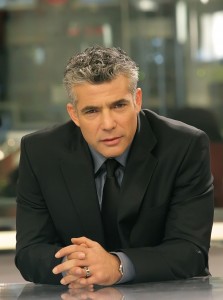
For those of you who don’t know much about Lapid, here are a few insights into the leader of Yesh Atid, who looks like he will be THE big player on the Israeli political scene. Lapid is kingmaker to King Bibi.
Lapid says he knows Israeli politicians well from covering politics for many years as a journalist, and he’s “not afraid of them.” I wonder though about his staying power: just how much fight does this former amateur boxer have in him? Because listening to his fighting words, especially against the current political system and pretty much every single serving Israeli member of Knesset [especially the religious MKs but not just them], I predict that Yair Lapid is going to get into the fight of his life – whether he joins the next coalition or stays in the opposition. And it’s going to be a long and ugly fight, so it’s just as well that Lapid said he’s going into politics for the long run. “It’s my second career and there won’t be a third,” he says.
He says he’s going to be a good, thorough, and professional politician, that he’s going to take it extremely seriously, and stuck to his promise of not recruiting any serving Israeli MK into his new party.
Like US President Barack Obama when he ran for his first term, Lapid is someone who is banking on a message of change; change in the political system, change in the nation’s fiscal and social priorities, change in the education system, change to the rules of national burden: he promises that he will work for seismic changes to the national fabric of Israeli society: the ultra-Orthodox must serve in the army or national service and they must join the workforce etc.
But like Obama, Lapid may be creating too many expectations, and might suffer from this down the line when he’s faced with the harsh realities of the Israeli political system, and the expected economic downturn and massive budget cuts the next government will have to implement.
But for now, Yair Lapid is clearly enjoying himself. He’s enjoying “telling the truth” as opposed to politicians’ necessity of messaging and towing party lines. He’s enjoying motivating people and firing up the discontented secular middle class.
Like Obama’s first campaign, Lapid crowd-sourced his campaign, mostly on the Internet. His Facebook friends asked him questions, and he sat all night and answered them. I followed one of his staffer’s Instagram account, and I can tell you that Lapid held at least one parlor meeting every day somewhere in the country. Every day. READ MORE
Israel’s election in 1 picture and 1 word: Bibinett
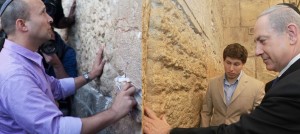
In my mind, the central theme of the 2013 Israeli elections was that there was no challenger to Prime Minister Benjamin Netanyahu. Within that context, all the main political battles that took place occurred within the political blocs: Yechimovich vs Lapid vs Livni; but more interestingly, between Netanyahu and Habayit Yehudi chairman Naftali Bennett. The latter were canvassing for essentially the same voter base. And if the polls hold true, Bennett emerged victorious – even if he is not crowned prime minister. He will be a major player in the next governing coalition.
Why did Bennett do so well? How did he manage to take away so many votes from the Likud? And how did they succeed in attracting voters so distant from their traditional national religious Zionist base?
For one, Bennett modeled himself on Netanyahu, and that drove the prime minister absolutely up the wall. And talking about walls, take a look at the following two pictures, I think they speak volumes about the two men, and the battle they waged between them. READ MORE
Israel: Not Jewish, not Democratic
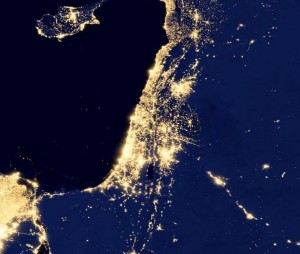
Let’s call a spade a spade, shall we?
Looking ahead at 2013 and beyond, there are two distinct trends which I see that are coalescing into one unmistakable reality: Israel is not going to be either a Jewish or Democratic state down the line.
We’re not going to be democratic because there is very, very little chance we’re going to have a two-state deal with the Palestinians.
The way things are shaping up, our next government will likely be the most right-wing we’ve ever had here and its common denominator will be the annexation of large areas of the West Bank and ratification of a report which says that Jewish settlements in Judea and Samaria are legal under international law. Whether you agree with this worldview or not, the fact is that most members of the next government are going to work to make this a reality.
The Palestinian leadership in the West Bank is the most ‘moderate’ we’re ever likely to have here and what’s depressing about that is that even the maximum that a moderate Israeli government is willing to give isn’t anywhere near the minimum the Palestinians are willing to accept. And since we’re not going to have a moderate government here for at least the next four years, the Palestinians are not going to get their demands. And after the ‘moderate’ Palestinians go, their successors will be much more extreme.
So there won’t be peace and there won’t be two states.
Kosher frogs’ legs, or Israeli diplomacy
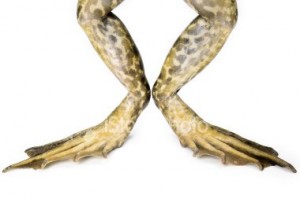
Recently, every time Israel has come under withering international approbation – usually for its settlement activity or rounds of retaliation against terrorists – the government reverts to the following line: “Loh naim, loh nora,” which translates loosely into: It’s not pleasant, but it’s not awful either.
When we lose a UN vote by 138 to 9, it’s not pleasant, but it’s not terrible either. We always lose UN votes. It could have been 147 to zero. But even then, it would be uncomfortable, but not catastrophic. When England, France, Sweden and Australia summon our ambassadors to read them the riot act, it’s not pleasant, but it’s also not so terrible. They could have recalled their ambassadors from Tel-Aviv, or even expelled our ambassadors. That would have been awful. But you know what? Awful is still OK; awful is not disastrous.
It’s not only international criticism though. Even internal reports that criticize the government’s handling of, say, road accidents, fires, school exam results, are all met with “loh naim, loh nora.”
It’s not great, but it’s not too bad. In other words, it could be worse. In other words, it can always be worse, so this is no big deal. It sure feels like it’s getting worse, but things really are not so bad.
According to this thinking, when things get worse, they still won’t be really bad. When things get worse, and things really seem to be getting worse here, the government will say “it’s bad, but not terrible.”
“Listen, things are really bad, but they’re not catastrophic. OK, ok, things are catastrophic, but they’re not disastrous. Wow, this is a disaster, but you know what, we’ve had it worse, so it’s really not so bad. We overcame Pharaoh, we’ll overcome this too. It’s bad, but it’s not the end of the world. The sky falling is bad? Sure but it could be worse: it could be the end of the world.” READ MORE
Explaining Israeli elections through popular TV shows
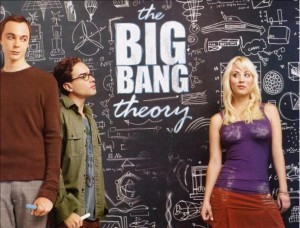
Person of Interest Aryeh Deri of Shas is Prison Break – making a comeback to the political party he led thirteen years ago after a long stint in prison for financial corruption. But first he has to push current leader Eli Yishai aside.
Yishai, a hardliner on asylum seekers, refugees, and anybody else who is not ultra-Orthodox Jewish, will say and do anything to keep his position, so he’s Lie To Me.
Together, Deri and Yishai are Supernatural; just like the party they’re in.
Olmert, convicted on charges of corruption, is the Sopranos.
Many in the legal and academic institutions in Israel see the return of Deri and Olmert as the season of Criminal Minds.
Current Kadima chief and Leader of the Opposition Shaul Mofaz is Walking Dead, because Kadima is not expected to survive the coming elections. READ MORE
That’s it, I’m becoming haredi
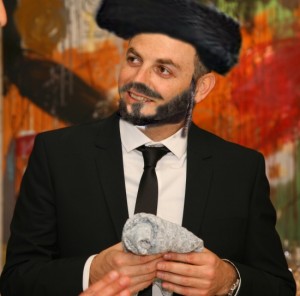
That’s it, I’m becoming haredi.
I’ve always been told that I have a Jewish neshoyma, and I think it’s time to bring it out of its hiding place, deep within my secular chest, out into the open. I’ve often spoken to God, wherever and whenever I found the time and need to. But now I can talk to him at fixed times, and at fixed locations, with the right words, legitimately, not, you know, on the fly, as I’ve been doing.
I’ve spoken to my wife about it [probably the last time I'll do this now] and we both agree that it makes perfect spiritual and financial sense for both of us to become ultra-Orthodox and raise our children frum. Lots of little frum children. She’s happy to spend the next 15 years of her life going from pregnancy to pregnancy, really she is.
The truth is that we can longer afford to remain secular. READ MORE
If Israel strikes Iran alone, she will stay alone
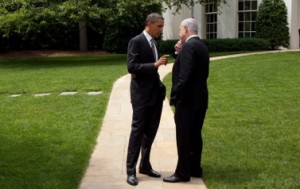
I think that if we do this alone we’ll dig ourselves into a hole we won’t know how to get out of
I think that if we do this alone we risk the alliance with our only true friend in the world – a superpower at that.
If we do this alone at a time when the entire Arab world is in flux we’ll be playing into the hands of the Arab street
Forget what the rulers say in private [that they would love us to hit Iran]
The street will be turned against us by those very same Arab rulers who privately hope we go it alone. That way they get to see their two main enemies bloody each other: Israel and the Shiite Iran.
If we do this alone, the Arab states will get their own nuclear weapons, and they’ll blame our aggression for it, not the Iranians.
If we do this alone we’ll take the heat off Bashar Assad – at a critical moment in time – just as the world is focused squarely on his barbarity
If we do this alone we’ll go to war with Hezbollah, Iran and possibly Syria. READ MORE
Moment of silence at Olympic ceremony could embarrass Israel
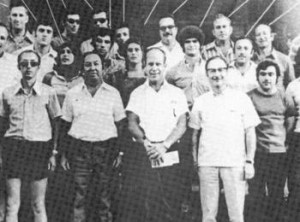
A moment of silence at the Olympic ceremony could, I fear, embarrass Israel. It’s no secret that the International Olympic Committee does not want to ‘politicize’ this issue even more. Holding a minute of silence for Israelis murdered in cold blood by Palestinian terrorists – the way we see it, or Israeli men of military age killed by Palestinian freedom fighters – as much of the Muslim and Arab world sees it – will politicize the opening ceremony to the extreme. We will be accused of exploiting the ceremony for propaganda purposes. We call it commemoration, the world will call it propaganda.
Let’s face it folks, Israel is not loved abroad. You knew that, right? It’s not loved amongst British people, it’s not loved amongst European people, it’s not loved amongst most African and Asian nations, and it is certainly loathed amongst Muslim and Arab nations. If a moment of silence were to be held at the Olympic stadium tonight, where not just Americans, Canadians, Australians and Micronesians are in attendance, chances are quite good that our minute of silence will not be fully respected. Chances are quite good even that it could be disrespected, even booed. And if that happened, if the minute of silence for Israel’s 11 murdered athletes were booed, what have we achieved? We, as Israelis, will just feel disheartened, disgusted, upset. How would we feel if we saw, actually saw, just how few friends we actually have in the world? READ MORE
What Israelis want

The ultra-Orthodox Israelis want to continue receiving state subsidies, while at the same time not sharing the burden of creating the means for those subsidies: serving in the army, doing national service, or entering the workforce. The haredim want to be left alone.
Prime Minister Benjamin Netanyahu wants the ultra-Orthodox to serve in the army or do national service, and at the same time, he doesn’t want to burn his political bridges to the ultra-Orthodox parties. Bibi wants the political support of Shas and UTJ after the next elections in 18 months time, while at the same time, wanting them to acquiesce now and draft their young flock into the army. Bibi wants to buy [their support now] and not pay for it later [when they refuse to support him].
But the religious parties are in a bind: if they don’t support Bibi now, and refuse to support him later, and because of them, somebody else becomes prime minister [say Shelly Yechimovich], will they support her? Will she support them? The truth is that the religious parties have no better alternative to Binyamin Netanyahu, and they know it.
Bibi set up a committee to deliver recommendations to replace the Tal Law because he wanted to show the public that he was taking its concerns to heart, and because he wants to increase the workforce. But as soon as he saw that the committee was coming up with serious conclusions that would endanger his coalition, he set up a secret committee, made up of his close aides and the heads of the religious parties, to make sure that no serious recommendations are made that could endanger his coalition. Bibi wants slow, small, and steady reform. He doesn’t want sudden, structural changes. King Bibi, as Time Magazine called him, is supremely happy being Israel’s Supreme Leader with 94 Knesset votes, a mammoth coalition. He wants to keep this going. He does not want to become Prince Bibi, Count Bibi, or even Duke Bibi. READ MORE

